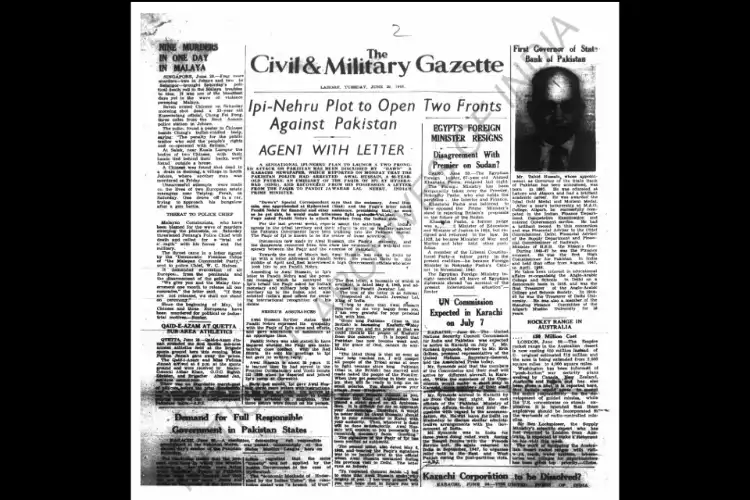Saquib Salim
“Since long Pakistan (that is, the British) is harassing Kashmir. May God give you (Jawaharlal Nehru) and me (Faqir of Ipi) power so that we could liberate the people of Kashmir from this calamity……. as soon as your help reaches me, I will compel all people of Tribal areas at once to fight." This is an excerpt of a letter intercepted in May 1948 by the Pakistani intelligence agencies.
Faqir of Ipi, Mirza Ali Khan, in collaboration with Khan Abdul Ghaffar Khan was trying to get the support of the Indian Government led by Nehru to fight against the newly created Pakistan. Nehru never obliged.
Why were these ‘Muslim Pathans’ fighting an ‘Islamic Pakistan’? Every Indian must know the name of the Faqir of Ipi, leader of the Pathans in Waziristan. He fought for Indian independence along with Netaji Subhas Chandra Bose and after 1947 wanted to fight Pakistan to liberate Pakistan-occupied Kashmir (PoK).
Milan Hauner of the University of Wisconsin Madison defined Faqir of Ipi as “the most determined, implacable single adversary the British Raj in India had to face amongst its subjects”. Faqir of Ipi had gathered an armed militia of local tribesmen in Waziristan to fight the British forces in the 1930s. He was part of a larger revolutionary plan to liberate India during the Second World War. Thousands of guerillas attacked the British forces in the region with monetary and material support from Italy and Germany.
Pietro Quaroni, Italian Minister at Kabul, was helping the Faqir from at least 1939. Quaroni was the man who helped Netaji Subhas Chandra Bose to cross over from Afghanistan in February 1941. Bose was of the view that with adequate help from the Axis powers, tribals of North West Frontier Province would be capable of defeating the British Army in India. Hauner writes, “Bose indeed assigned the Tribal Territory an important role to play in his comprehensive 'Plan for Cooperation Between the Axis Powers and India', which he submitted immediately after he arrived in Berlin.
Isolated attacks, such as those carried out by the Faqir of Ipi, were to become part of an ambitious scheme to combine propaganda and subversion against the British Empire at its most vulnerable spot. In his single-minded obsession with ousting the British from India, Bose was convinced that the mere appearance of a small force of 50,000 soldiers with modern equipment on the Frontier would have been sufficient to turn the British out of India.” Though, the Axis powers failed to act upon the advice of Netaji.
Germans and Italians separately made plans to help the Faqir in Waziristan and Pir of Pagaro in Sindh as part of Bose’s Organisational plan but it could not materialise as they suspected few spies in the network. Several intelligence reports pointed out that the Faqir was getting direct instructions, arms, and money from the Axis power and later collaborated with Netaji.
Faqir of Ipi fought for a united Indian nation and after 1947 kept striving for that. For reasons unknown, Nehru did not help people like him otherwise history would have taken a different course.

